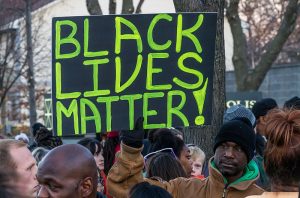Media Should Inform the Public on Why, Not Just What, of Criminal Legalities
As we discussed potential procedures following the aftermath of acts causing tension between citizens of the Milwaukee area and police officers, a small group I was part of presented an interesting point. That point was that many times citizens are unaware of the on-goings of the criminal legal system. When situations arise in which officers or citizens are not found guilty subsequent to what seems to be a criminal act, onlookers are furious and the city burns—literally.
The media does little to help reduce the animosity, pointing fingers and creating distrust between residents and law enforcement by informing on the what, but failing to expand on the why. We as law school students are all legally educated, and most of us, at the least, have taken criminal law, even if we are not so knowledgeable as those who teach it. So, when an event takes place that seems unjust and nobody walks away in handcuffs, we understand why. The citizens of Milwaukee, however, don’t have that same knowledge and are understandably outraged.

